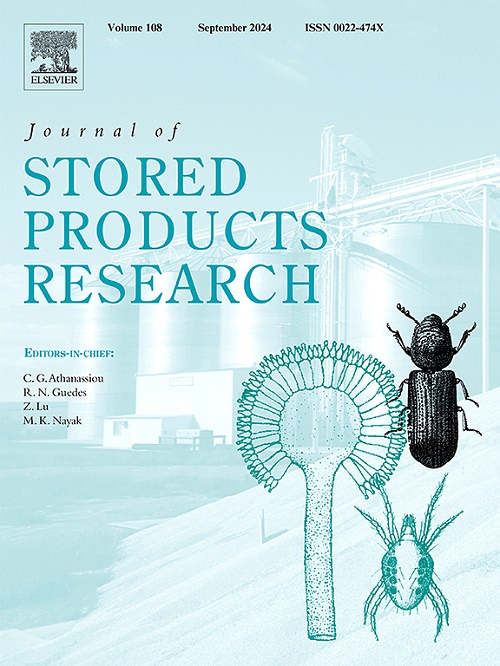AI-driven grain storage solutions: Exploring current technologies, applications, and future trends
IF 2.7
2区 农林科学
Q1 ENTOMOLOGY
引用次数: 0
Abstract
The integration of artificial intelligence (AI) and machine learning (ML) technologies is revolutionizing the food grain industry, particularly in the storage and quality management. This work provides a comprehensive review on the integration of AI and ML in the food grain industry, focusing on current technologies, applications, and future advancements. Various AI technologies including artificial neural networks (ANNs), fuzzy logic systems, and ML methods such as deep learning, supervised learning, and anomaly detection have been discussed. The practical applications of these technologies in addressing critical areas such as pest and insect damage detection, grain classification, crop disease detection, mycotoxin contamination, and supply chain management are highlighted. Applications of innovative technological approaches, including edge computing, digital twins, Internet of Things (IoT), and blockchain, have been discussed for their impact on enhancing grain storage quality management. The review also critically examines the challenges and limitations associated with AI and ML, such as data privacy, inaccuracies, and regulatory concerns. In addition, the emerging trends that are set to revolutionize grain quality management such as smart sensors, robotics, remote sensing, and augmented reality are discussed. By synthesizing current knowledge and future prospects, this review aims to provide a holistic understanding of AI's transformative potential in the grain industry.
人工智能驱动的粮食储存解决方案:探索当前技术、应用和未来趋势
人工智能(AI)和机器学习(ML)技术的融合正在彻底改变粮食行业,特别是在储存和质量管理方面。本文全面综述了人工智能和机器学习在粮食工业中的集成,重点介绍了当前的技术、应用和未来的进展。讨论了各种人工智能技术,包括人工神经网络(ann),模糊逻辑系统以及深度学习,监督学习和异常检测等ML方法。重点介绍了这些技术在病虫害检测、粮食分类、作物病害检测、霉菌毒素污染和供应链管理等关键领域的实际应用。讨论了包括边缘计算、数字孪生、物联网(IoT)和区块链在内的创新技术方法的应用对加强粮食储存质量管理的影响。该审查还严格审查了与人工智能和机器学习相关的挑战和限制,例如数据隐私、不准确性和监管问题。此外,还讨论了智能传感器、机器人、遥感和增强现实等新兴趋势,这些趋势将彻底改变粮食质量管理。通过综合当前知识和未来前景,本文旨在全面了解人工智能在粮食工业中的变革潜力。
本文章由计算机程序翻译,如有差异,请以英文原文为准。
求助全文
约1分钟内获得全文
求助全文
来源期刊
CiteScore
5.70
自引率
18.50%
发文量
112
审稿时长
45 days
期刊介绍:
The Journal of Stored Products Research provides an international medium for the publication of both reviews and original results from laboratory and field studies on the preservation and safety of stored products, notably food stocks, covering storage-related problems from the producer through the supply chain to the consumer. Stored products are characterised by having relatively low moisture content and include raw and semi-processed foods, animal feedstuffs, and a range of other durable items, including materials such as clothing or museum artefacts.

 求助内容:
求助内容: 应助结果提醒方式:
应助结果提醒方式:


